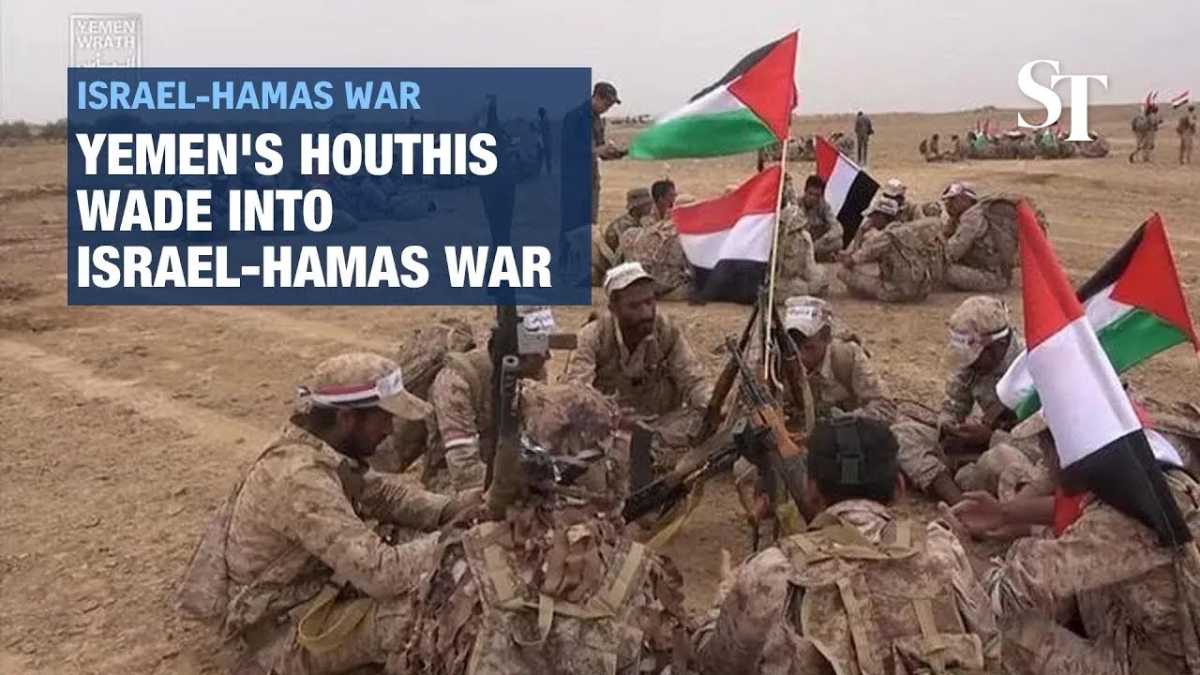World
Yemen’s Houthis Join Israel-Hamas War, Highlighting Regional Risks

Yemen‘s Houthis have recently joined the ongoing Israel–Hamas war, further highlighting the regional risks associated with the conflict. The Houthi group, based in the Yemeni capital of Sanaa, announced on October 31 that they had launched drones and missiles towards Israel, despite being more than 1,000 miles away from the Israeli border. This development raises concerns about the potential escalation of the conflict beyond its current borders.
The roots of the Houthi movement can be traced back to the late 1990s when the Houthi family established a religious revival movement for the Zaydi sect of Shi’ite Islam. As the Zaydi heartland in northern Yemen faced marginalization and impoverishment, the Houthis emerged as a resistance force against the government. This led to a series of guerrilla wars with the national army and a brief border conflict with Saudi Arabia, a Sunni powerhouse in the region.
The war in Yemen began in late 2014 when the Houthis seized control of Sanaa. Alarmed by the growing influence of Shi’ite Iran along its border, Saudi Arabia intervened in March 2015 with a Western-backed coalition to support the Saudi-backed government. While the Houthis established control over much of northern Yemen and other major population centers, the internationally recognized Yemeni government relocated to Aden.
The conflict in Yemen had experienced relative calm for over a year as the United Nations-led peace process gained momentum. Saudi Arabia has been engaging in talks with the Houthis to find a resolution and exit the war. However, the recent Houthi attacks on Israel have introduced new complexities and heightened risks for Saudi Arabia and the wider region.
Houthi military spokesperson Yahya Saree confirmed the group’s involvement in the attacks on Israel in a televised statement. He claimed that the Houthis launched a “large number” of ballistic missiles and drones towards Israel on October 31 and vowed to continue such attacks to support the Palestinians. Saree’s statement seemed to confirm the Houthi’s responsibility for an earlier drone attack on October 28, which caused explosions in Egypt and was attributed to them by Israel. They were also linked to the interception of three cruise missiles by the U.S. Navy on October 19.
Identifying themselves as part of the “Axis of Resistance” backed by Iran, the Houthis have aligned themselves with the Palestinians in response to Hamas’s attacks on Israel. Saree blamed Israel for regional instability, accusing them of perpetuating conflict in the Middle East with their ongoing actions. He stated that the Houthi attacks would continue until “Israeli aggression stops.”
The Houthis have demonstrated their missile and drone capabilities throughout the Yemeni war by targeting Saudi Arabia and the United Arab Emirates. They have attacked oil installations and critical infrastructure, further heightening tensions in the region. The Saudi-led coalition has consistently accused Iran of arming, training, and funding the Houthis. The group, however, denies being an Iranian proxy and claims to develop their own weaponry and technology.
Overall, the Houthis’ involvement in the Israel-Hamas war signifies an expansion of the conflict beyond its immediate borders. With the risk of escalation, regional powers like Saudi Arabia face increased challenges in finding a peaceful resolution. The international community, led by the UN, continues to push for diplomatic efforts to end the war in Yemen and promote stability in the region.












